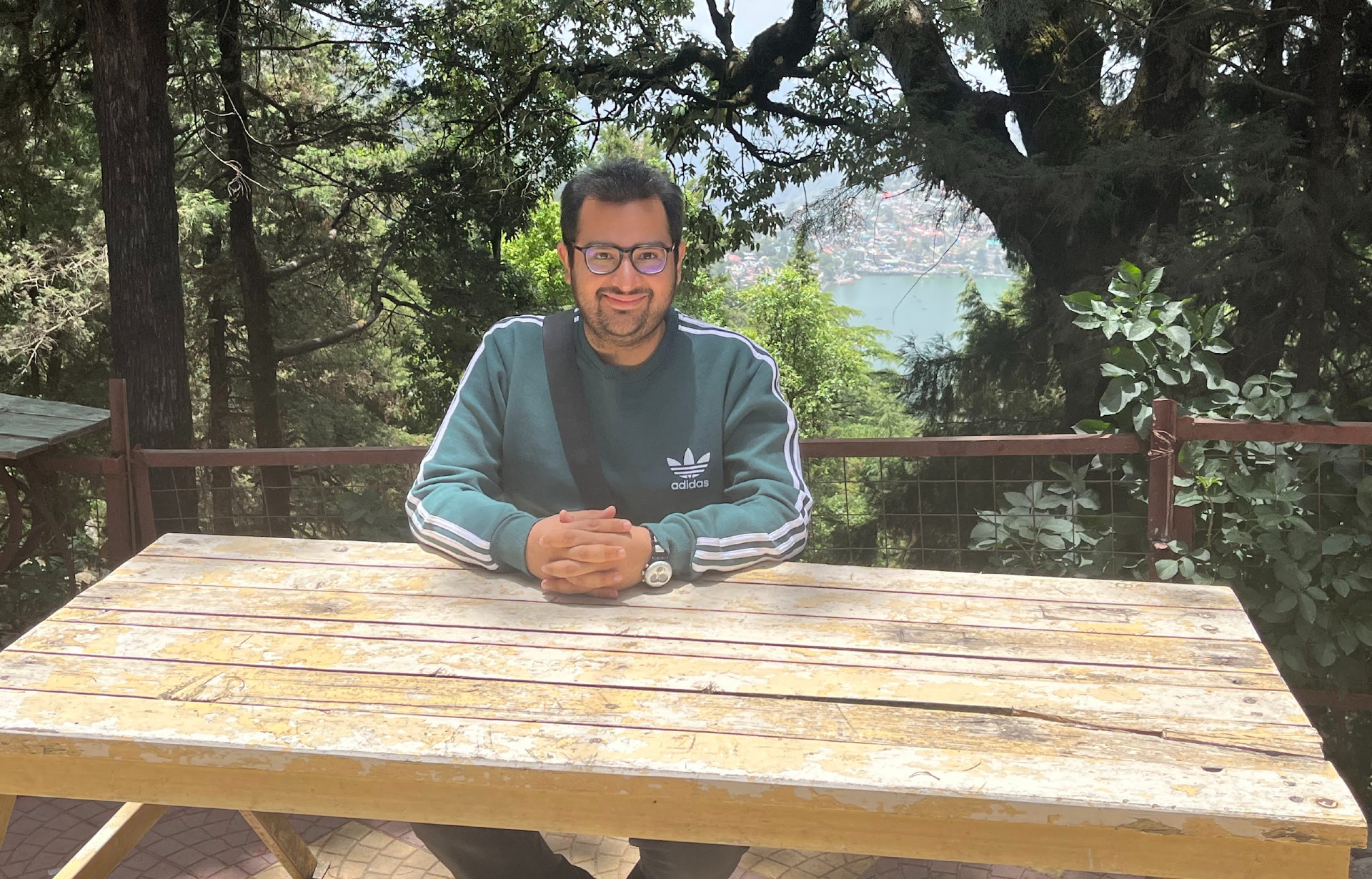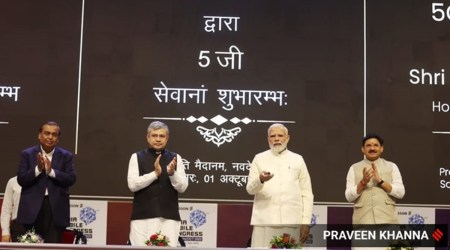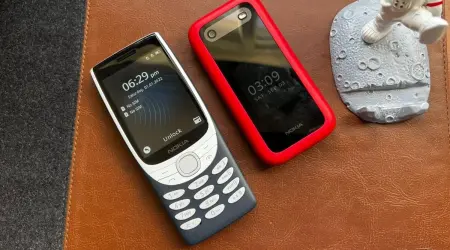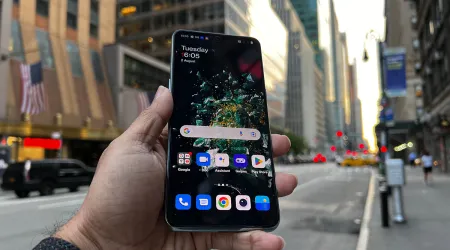- India
- International
This Indian startup is using VR to help architects and construction engineers
In an interview with Indianexpress.com, Tithi and Gautam Tewari - the founders of SmartVizX, the start-up behind Trezi, tells us about the idea behind creating India's first virtual reality platform for the architecture, engineering and construction industry.
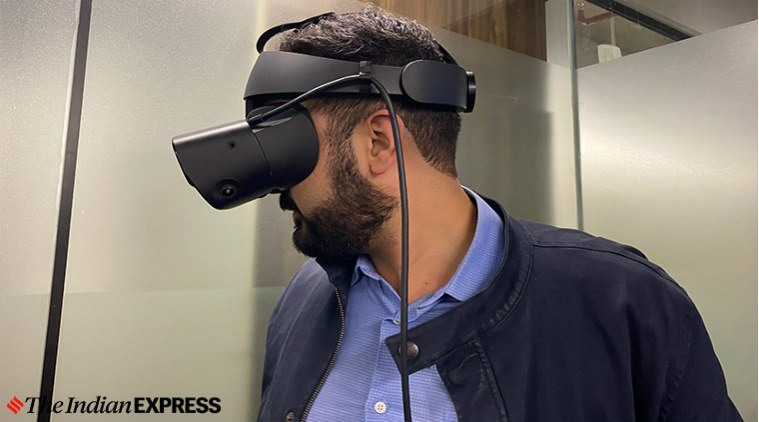 Trezi is India’s first virtual reality platform for the architecture, engineering and construction industry. (Image credit: Anuj Bhatia/Indian Express)
Trezi is India’s first virtual reality platform for the architecture, engineering and construction industry. (Image credit: Anuj Bhatia/Indian Express)
As I entered the premises of 91springboard, a co-working space in Noida, to meet Tithi and Gautam Tewari – the founders of SmartVizX, the start-up behind Trezi, a VR platform for the building industry, I wasn’t sure what to expect. But when I met the architects I got a sense of the grand vision behind creating a virtual reality platform that tries to solve a common problem which the construction industry faces on a daily basis.
“Trezi was an idea born out of frustration,” recalls Gautam, who co-founded SmartVizX alongside Tithi in 2015. “While we were exposed to very good visualisation technologies in our careers, we realised that those visualization technologies were really not helping us understand our own designs and communicate to our clients or those involved in the process of project delivery,” Gautam says.
After leaving their respective jobs, Gautam and Tithi both started exploring new technologies and methodologies that could help them better communicate their designs to the clients. This was roughly the same time period when Facebook bought virtual reality platform Oculus for US$2.3 billion in 2014. Microsoft had just launched the HoloLens and smartphone maker HTC joined hands with Valve to announce the Vive, a virtual reality headset. It was still early days for the VR industry and big tech firms like Facebook had just entered the space.
Both Gautam and Tithi saw potential in the immersive nature of virtual reality that allows users to move in a computer-generated world and interact with it. “We went really deep into understanding how immersive technology could come in and marry with our existing architectural design methodologies,” he says. “After the early prototypes that we built and took to the market, we realised this was certainly something that could solve problems that we had been dealing with.”
 The web-based software is available on both monthly and annual subscriptions — Rs 10,000 per month and Rs 96,000 annually. (Image credit: Anuj Bhatia/Indian Express)
The web-based software is available on both monthly and annual subscriptions — Rs 10,000 per month and Rs 96,000 annually. (Image credit: Anuj Bhatia/Indian Express)
Interestingly, the initial team had two-three gamers. After 2016, when SmartVizX raised money with Indian Angel Network and Stanford Angels & Entrepreneurs leading the round, they could hire the necessary engineering talent to work on the product. The first version of Trezi came out in 2018.

Trezi is India’s first virtual reality platform for the architecture, engineering and construction industry. In fact, it is the world’s first immersive platform for architects, building product manufacturers and construction engineers.
The web-based software is available on both monthly and annual subscriptions — Rs 10,000 per month and Rs 96,000 annually. There is also an advanced option for customers to list their products, create VR catalogues and collaborate with other architects. The subscription for this module starts at Rs 30,000 a month or Rs 3.6 lakhs annually.
 Tithi, a graduate from CEPT, Ahmedabad and an alumna of INSEAD, says she found VR an immersive medium to engage with the clients. (Image credit: Anuj Bhatia/Indian Express)
Tithi, a graduate from CEPT, Ahmedabad and an alumna of INSEAD, says she found VR an immersive medium to engage with the clients. (Image credit: Anuj Bhatia/Indian Express)
What makes Trezi interesting is this VR collaboration which allows the designer, the architect, the furniture manufacturer and the CEO of a company to collaborate in real-time and make changes in VR itself. This not only saves cost, but also helps expedite decisions.
“The platform [Trezi] takes away the physical aspect of construction that eventually costs money, bring it into the virtual side of things,” explains Gautam. Tithi adds: “Right from day one, it has been about solving a pain point and we have lived those pain points that we’re trying to solve with Trezi.”
The problem, according to Tithi, has always been to communicate what is envisioned to a client. Tithi cited the example of a meeting between a designer and a client to explain a range of design finalisation challenges she had faced in the early years of her career. “Let’s say you want your office designed and I will come to you with a layout. I can explain to you to the best of my ability, but you will process it the way you would understand. You know what is 20 feet, but you can’t really visualise 20 feet in your brain.”
“The pain points of design communication, design experience, and design collaboration”, Tithi said, “have caused wastage of millions of dollars and the money spent on correcting these. People have been unhappy and a number of projects have got severely delayed.”
Asked if VR was the only solution here, Tithi says she found VR an immersive medium to engage with the clients. “As long as there are spaces that are being discussed, there is going to be the need for immersive. You cannot really give a good decision by looking at a screen even if you saw a 3D on a screen, it is still 2D, because it is not giving you an understanding of the Z-axis.”
 Gautam agrees that it will take some time for people to get used to new technology. (Image credit: Anuj Bhatia/Indian Express)
Gautam agrees that it will take some time for people to get used to new technology. (Image credit: Anuj Bhatia/Indian Express)
Tithi understands that virtual reality still isn’t mainstream and handsets are expensive. But she also adds that virtual reality has found a niche in the building, architecture and engineering construction industry. “We have our customers who have come back and said that we were able to save 30 per cent of design time, which means that if I can save a quarter for my customer, they can go and get more work, more revenue, more productivity. What more does anybody want?”
“This whole thing of VR has not worked is a misnomer,” Gautam adds. “Virtual reality has only grown; we are talking about 171 million users. It may not be where it was projected to be, but it is not that it has tanked.”
Trezi has been downloaded 1000 times over the past 15 months, which is a decent number for a B2B software. The company has over 102 customers paying for Trezi.
Gautam agrees that it will take some time for people to get used to new technology. “With VR, now you are going to be inside a design. And we’re going to be looking at it interrogating it, interacting with it, changing it, and then calling the person who’s going to be paying you top dollar for the design to manifest itself into a physical form; call that person in and get the approvals without the need of running into a physical meeting and go after the people who are going to build that particular design,” he says.
 The Trezi platform is hardware agnostic and works with all leading VR headsets.. (Image credit: Anuj Bhatia/Indian Express)
The Trezi platform is hardware agnostic and works with all leading VR headsets.. (Image credit: Anuj Bhatia/Indian Express)
SmartVizX has recently collaborated with HP’s business group. “Trezi is about getting work done, Trezi is not about creating fancy viewing,” Gautam says. “We want to use VR as an enabler, not as a gimmicky sort of approach.”
The Trezi platform is hardware agnostic and works with all leading VR headsets. Given the nature of work, high-end headsets are needed, because without them you cannot move or even walk through space. In addition, there is also a need to invest in the best VR-ready laptop capable of handling all that power. But for architecture firms, buying high-end VR headsets and VR-capable PCs, is a very big investment.
SmartVizX now has a large 40-member team spread across Delhi, Bengaluru, Mumbai, and one person is based in Chicago. The company’s core engineering team, which works on the platform, sits in Bengaluru.
Gautam counts 50 per cent of India’s largest architecture firms are using Trezi including Venkataramanan Associates, Sanjay Puri Architects and Hundred Hands, among others. A few International architecture firms like Gensler and Takenaka Corporation are also using Trezi. It’s the beginning and there are tonnes of possibilities, Tithi chips in.
Rajiv Nair, former MD of Microsoft India and Autodesk India, has been roped in as a senior advisor who is helping the company scale up business operations. SmartVizX is aggressively looking to increase its sales channels in Germany, Dubai, and Japan. The US and Japan continue to be the biggest markets for Trezi. Tithi also hints at raising more capital next year, which will be used for geographic expansion.
More Tech
Apr 25: Latest News
- 01
- 02
- 03
- 04
- 05











